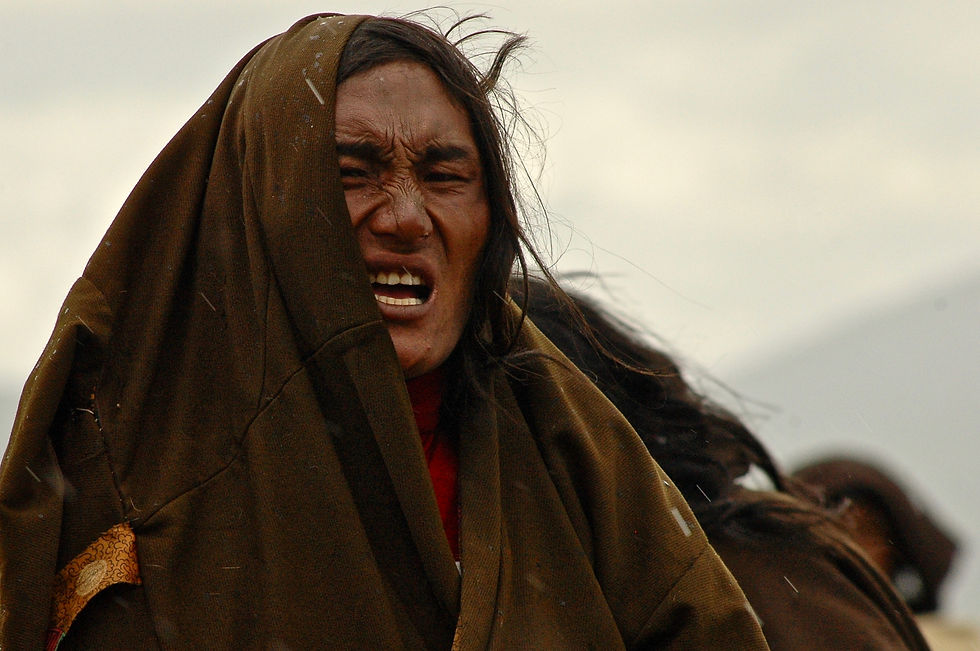Puer´s Ancient Green Home- Part I
- Jeff Fuchs
- Feb 23, 2011
- 3 min read
“with a cup of tea in front of you, you do not lie”
Dai elder
The Where’s: Southwestern Yunnan, Xishuangbanna, Pulang Mountains The Who’s: Xiao Yang, Hani, Pulang, Dai, Wa peoples The What’s: Sheng/Raw/Green Puer

In tea circles Lao Banzhang town resonates as a heaveyweight. Lying within the Pulang Mountain Range of southern China it is known for robust and potent ‘sheng’ (raw/green) Puer’s.
Hunched forward in a kind of rigid prayer, my hand is welded onto the passenger seat’s hand rest knowing full well that even a momentary release of grip and I will be thrown about the inside of the pickup like fluid. Xiao Yang drives in the casually reckless but thoroughly competent manner of locals. Fluid one moment, muscular the next, all the while chewing on a cigarette that refuses to burn down. The fingers of his right hand are stained – tea stained. He has since young, clipped tea leaves from the stems and I view these stains as natural tattoos of honour in my very biased books.
As we jolt around in the cab Xiao Yang once in awhile utters a “whoaaaaa” flicking his eyes at me in a kind of commiserate surprise that we haven’t yet perished on the road.

Yours truly makes an escape from one vehicle…and into another. Here a brief pose with Luo (another relative of Xiao Yang).
Slowing down is not on the menu as his foot remains jammed into the gas pedal. The often-impassable road is a desiccated mess of dust and gouges. We arrive shaken, stirred and with – not for the first time in my life – a brutal thirst.
Xiao Yang belongs to the Hani (known as the Akha in Thailand and Laos) minority, has the simmering good looks of many of the indigenous and already carries world-weariness to him – but his tea knowledge is remarkable in that it is instinctive and uncluttered with pretension.
His father is one of the headmen of Lao Banzhang – one of the planet’s most remarkable tea towns – and Xiao Yang has grown up with some of this world’s oldest tea forests as part of his physical and mental landscape. He has also enviably grown up sipping tea that for many sit at the top of the tea wish-list. Lao Banzhang (Old Banzhang), Hsin Banzhang (New Banzhang), along with many tea towns tucked into the Pulang Mountain range constitute a tea strip that for many is unequalled in the Pu’erh world. Served strong and simply by the locals, tea from this area hits and affects areas of the mouth never before touched and then disappears down the gullet leaving a sweet trail.

In true tea-towns teas go through a barrage of tests, with the leaves being studies, smelled and finally tasted…and tasted again and again.
Where many of the west’s self-proclaimed tea aficionados throw around tea descriptions that are at once obtuse and pretentious – garnering knowledge second and third hand – Xiao Yang is one of those refreshing personalities who sips, who smells, who sips again – and knows a tea. In his world there is good tea, bad tea and tea that will (after time) become good tea. In his ‘tea framework’ of tea-reference there are never any “peach hues”, or “hints of tangerine”. In his world of pure almost brutal teas, additions are nothing less than a desecration of what the earth provides.




Comments